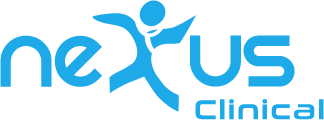
ICD-10 Code M10.9: Diagnosis Code
- M10.9 is a billable/specific ICD-10-CM code that can be used to indicate a diagnosis for reimbursement purposes.
ICD-10 Code M10.9: Diagnosis Code
- M10.9 is a billable/specific ICD-10-CM code that can be used to indicate a diagnosis for reimbursement purposes.

Billable/ Specific Code:
M10.9 is a billable/specific ICD-10-CM code that can be used to indicate a diagnosis for reimbursement purposes.
M10.9 is an ICD-10 diagnosis code used in the medical field to specify a particular condition. Understanding the details of Diagnosis Code M10.9 is crucial for accurate medical record-keeping and treatment planning. Nexus Clinical provides comprehensive insights into M10.9, including its usage in ICD-10, how it fits into the broader coding system, and specific diagnosis information.
Applicable To:
- Gout NOS
- Diseases of the musculoskeletal system and connective tissue
- Gout
Approximate Synonyms:
- Gout
- Gouty tophi
- Gouty tophi of heart
- Gouty tophi of left ear
- Gouty tophi of left elbow
- Gouty tophi of left foot
- Gouty tophi of left hand
- Gouty tophi of left olecranon bursa
- Gouty tophi of right ear
- Gouty tophi of right elbow
- Gouty tophi of right foot
- Gouty tophi of right hand
- Gouty tophi of right olecranon bursa
- Gouty tophus
- Gouty tophus of left ear
- Gouty tophus of left elbow
- Gouty tophus of left foot
- Gouty tophus of left hand
- Gouty tophus of left olecranon bursa
- Gouty tophus of right ear
- Gouty tophus of right elbow
- Gouty tophus of right foot
- Gouty tophus of right hand
- Gouty tophus of right olecranon bursa
Clinical Information
- A condition marked by increased levels of uric acid in the blood, joints, and tissue. The buildup of uric acid in the joints and tissues causes arthritis and inflammation.
- Gout is a common, painful form of arthritis. It causes swollen, red, hot and stiff joints. Gout occurs when uric acid builds up in your blood. This happens if your body produces extra acid or does not eliminate enough, or if you eat too many foods with purines, such as liver and dried beans. Pseudogout has similar symptoms and is sometimes confused with gout. However, it is caused by calcium phosphate, not uric acid. often, gout first attacks your big toe. It can also attack ankles, heels, knees, wrists, fingers and elbows. You are more likely to get gout if you
- are a man
- have family member with gout
- drink alcohol
at first, gout attacks usually get better in days. Eventually, attacks last longer and occur more often. Uric acid buildup can lead to kidney stones. Untreated gout can cause permanent joint and kidney damage. You can treat gout with medicines. nih: national institute of arthritis and musculoskeletal and skin diseases
- Hereditary metabolic disorder characterized by recurrent acute arthritis, hyperuricemia and deposition of sodium urate in and around the joints, sometimes with formation of uric acid calculi.
Related Specialties:
- Orthopaedics
- Rheumatology
ICD-10: A Brief Synopsis
For disease reporting, the US utilizes its own national variant of ICD-10 called the ICD-10 Clinical Modification (ICD-10-CM). A procedural classification called ICD-10 Procedure Coding System (ICD-10-PCS) has also been developed for capturing inpatient procedures. The ICD-10-CM and ICD-10-PCS were developed by the Centers for Medicare and Medicaid Services (CMS) and the National Center for Health Statistics (NCHS). There are over 70,000 ICD-10-PCS procedure codes and over 69,000 ICD-10-CM diagnosis codes, compared to about 3,800 procedure codes and roughly 14,000 diagnosis codes found in the previous ICD-9-CM.
The expansion of healthcare delivery systems and changes in global health trends prompted a need for codes with improved clinical accuracy and specificity. The alphanumeric coding in ICD-10 is an improvement from ICD-9 which had a limited number of codes and a restrictive structure. Early concerns in the implementation of ICD-10 included the cost and the availability of resources for training healthcare workers and professional coders.
There was much controversy when the transition from the ICD-9-CM to the ICD-10-CM was first announced in the US. Many providers were concerned about the vast number of codes being added, the complexity of the new coding system, and the costs associated with the transition. The Centers for Medicare and Medicaid Services (CMS) weighed these concerns against the benefits of having more accurate data collection, clearer documentation of diagnoses and procedures, and more accurate claims processing. CMS decided the financial and public health cost associated with continuing to use the ICD-9-CM was too high and mandated the switch to ICD-10-CM.





